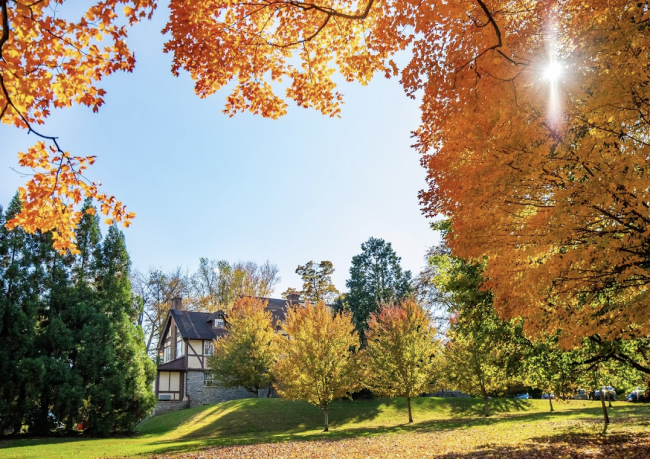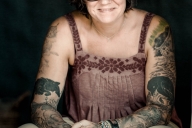You have /5 articles left.
Sign up for a free account or log in.

Eastern University in Pennsylvania will now hire and retain LGBTQ faculty and staff, putting it at odds with the Council for Christian Colleges and Universities.
Eastern University
Eastern University’s membership in the Council for Christian Colleges and Universities is on hold, following changes to Eastern’s stance on hiring LGBTQ employees.
The university, located in Pennsylvania and affiliated the American Baptist Churches USA, used to prohibit the hiring or retention of LGBTQ employees. It reversed this policy in May, in consideration of the interdenominational campus community and its varied theological positions on these issues. The university added sexual orientation to its employment nondiscrimination policy at the same time, for the same reasons.
This put the university at odds with the CCCU, which has said that hiring policies should align with “the historic Christian view of marriage.” (Religion News Service first reported this week that Eastern’s CCCU membership is on hiatus.)
Eastern said in a statement that its policy adjustments “reflect that Eastern is a broad academic community, inclusive of the wide spectrum of Christian churches, faith communities, and traditions that have arrived at different conclusions regarding questions of marriage and human sexuality.”
Regarding the CCCU, Eastern said that its membership is “on hiatus for the current academic year. The CCCU is considering our status moving forward. We respect the CCCU’s right to determine which institutions are members of the organization.”
Making clear that he was speaking only for himself, Eric G. Flett, professor of theology and culture at Eastern, said Tuesday that he supported the policy changes, as “I have friends who are members of the LGBTQ community, both in academia and in the church. I have benefited beyond measure from their gifts, and I find policies that exclude, punish and silence them to be discriminatory and unjust. I am happy for them when those policies are discarded, and I am happy to be identified with an institution whose commitment to justice has led to this decision.”
Amanda Staggenborg, CCCU spokesperson, said via email that the council is a “members-based association. Our members represent over 35 different denominations. The CCCU supports institutions and their denominational heritage. While Eastern University is on a membership hiatus for this current academic year, we respect their decisions made for the mission and values they represent.”
Eastern Mennonite University and Goshen College were the first CCCU member institutions to change their policies to permit the hiring of gay and lesbian faculty members who are either married or celibate (since sex outside of marriage is prohibited regardless of sexual orientation), in 2015. This caused a rift within the CCCU, with some other member institutions leaving or threatening to do so. Eastern Mennonite and Goshen, which are both affiliated with the Mennonite Church USA, ended up departing from the CCCU voluntarily, to avoid splitting the council. Bluffton University, another Mennonite institution, left the CCCU later in 2015 when it said that it would start hiring gay and lesbian employees.
Upon these departures, the CCCU said that other institutions to similarly change their hiring policies would have their membership status changed to “pending” and referred to a task force for review. The CCCU eventually also launched different tiers of memberships, with voting "governing" member status reserved for institutions that define marriage as between a man and a woman.
CCCU’s website no longer lists Eastern University as a member.
Eastern still requires faculty members and administrators to sign a lengthy doctrinal statement affirming their Christian beliefs annually. (Non-Baptists are only excused from attesting to a section on water baptism.)
Calvin University said this fall that faculty members may dissent from a required confession of faith clause that regards sex outside of heterosexual marriage as sinful. Calvin, located in Michigan and affiliated with the Christian Reformed Church, remains a listed governing member of the CCCU.
In recent months, Whitworth and Seattle Pacific Universities have faced pressure from campus groups to support the hiring of openly gay employees. Both are “collaborative partner” institutions within the CCCU, leaving them some flexibility on LGBTQ hiring policies.
Asked if Eastern and Calvin signal a coming trend, Chris Gehrz, professor of history at Bethel University (another CCCU institution), who writes about Christianity and Christian education, joked that historians are “terrible at predicting the future.” And even if he felt “more qualified as a prognosticator,” he said, “I’d hesitate to project anything based on the cases of Eastern and Calvin.” Why? Like the Mennonite institutions that left the CCCU in 2015, Eastern and Calvin “are connected to denominations that don’t nestle comfortably within white American evangelicalism. Eastern is affiliated with the American Baptist Churches USA, a theologically diverse mainline body. Calvin is the flagship university of the Christian Reformed Church, a historically Dutch group whose members don’t all identify with evangelicalism.”
Also hard to imagine for Gehrz: that CCCU members will “find it easy to resolve LGBTQ debates, since their constituencies aren’t of the same mind. If Christian universities try to reassure older constituents that they are not drifting from their theological convictions, they might simultaneously alienate students and young alumni who increasingly affirm same-sex marriage—and will grow into the next generation of donors and parents that these schools depend on.”
Likewise, he said, CCCU members “often want to sustain connections with denominations, but that might require them to take stances at odds with the values of potential partners in the corporate, nonprofit and public sectors.”









.jpg?itok=sZ1Pn-fP)